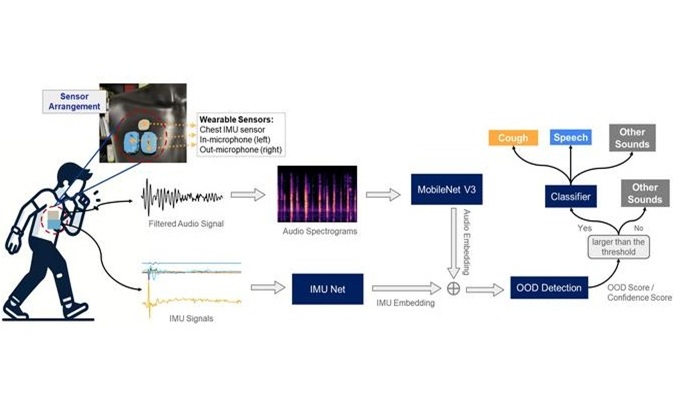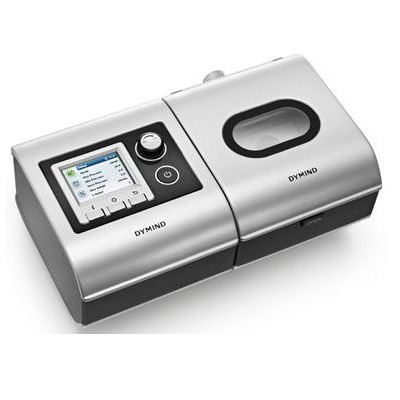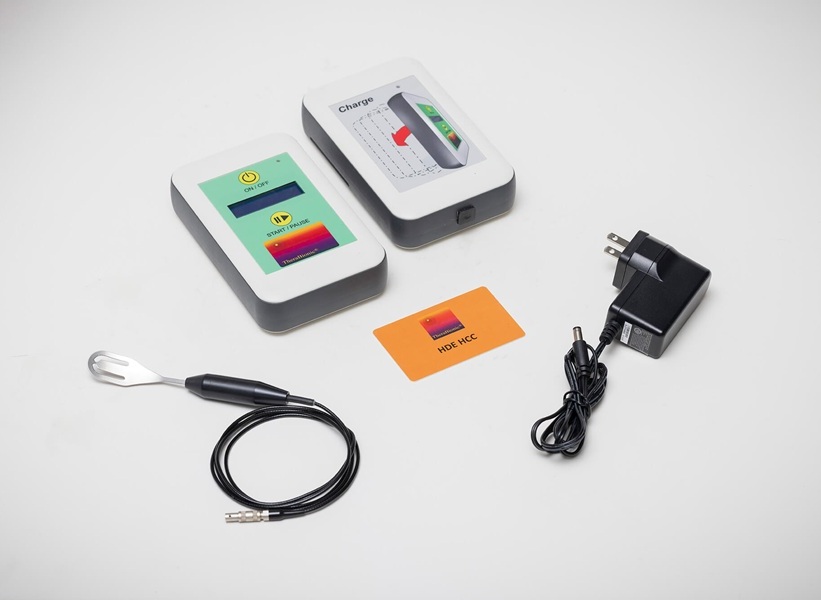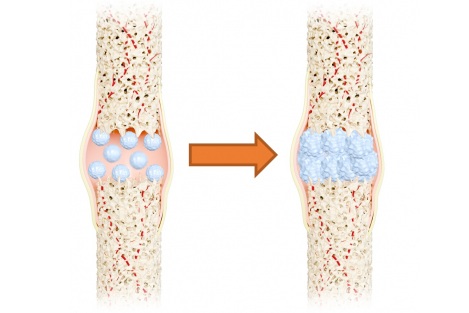FDA and DHS Expand Device Cybersecurity Partnership
|
By HospiMedica International staff writers Posted on 13 Nov 2018 |
The U.S. Food and Drug Administration (FDA; Silver Spring, MD, USA) and the Department of Homeland Security (DHS; Washington DC, USA) have announced a new framework for greater coordination and cooperation that will address medical device cybersecurity. The collaboration agreement will increase sharing of information of potential or known threats, assessments regarding the level of risk a potential vulnerability, and technical capabilities, with coordinated testing of devices as warranted.
Under the agreement, DHS will serve as the central medical device vulnerability coordination center and interface with appropriate stakeholders, including consulting with the FDA for technical and clinical expertise regarding medical devices. The DHS National Cybersecurity and Communications Integration Center will continue to coordinate information sharing between the FDA, medical device manufacturers, and researchers, particularly in the event of cybersecurity vulnerabilities in medical devices that are identified to the DHS.
The FDA will continue to engage in regular, ad hoc, and emergency coordination calls with DHS and advise DHS regarding the risk to patient health and potential for harm posed by identified cybersecurity threats and vulnerabilities. The agencies will also collaborate on planning, executing, and conducting after-action reviews of DHS-led exercises that simulate real-world cybersecurity attacks, and enable the federal government and stakeholders to practice and improve their responses to these threats.
“As innovation in medical devices advances and more devices are connected to hospital networks or to other devices, ensuring that devices are adequately protected against cyber-intrusions is paramount to protecting patients,” said FDA Commissioner Scott Gottlieb, MD. “Our strengthened partnership with DHS will help our two agencies share information and better collaborate to stay a step ahead of constantly evolving medical device cybersecurity vulnerabilities, and assist the healthcare sector in being well-positioned to proactively respond when cyber-vulnerabilities are identified.”
“Ensuring our ability to identify, address and mitigate vulnerabilities in medical devices is a top priority, which is why DHS depends on our important partnership with the FDA to collaborate and provide actionable information. This agreement is another important step in our collaboration,” said Christopher Krebs, undersecretary for the DHS National Protection and Programs Directorate. “DHS has some of the top experts on control systems technology, and we look forward to continuing to leverage this expertise for the sake of improving the lives and safety of people across the country.”
Related Links:
U.S. Food and Drug Administration
Department of Homeland Security
Under the agreement, DHS will serve as the central medical device vulnerability coordination center and interface with appropriate stakeholders, including consulting with the FDA for technical and clinical expertise regarding medical devices. The DHS National Cybersecurity and Communications Integration Center will continue to coordinate information sharing between the FDA, medical device manufacturers, and researchers, particularly in the event of cybersecurity vulnerabilities in medical devices that are identified to the DHS.
The FDA will continue to engage in regular, ad hoc, and emergency coordination calls with DHS and advise DHS regarding the risk to patient health and potential for harm posed by identified cybersecurity threats and vulnerabilities. The agencies will also collaborate on planning, executing, and conducting after-action reviews of DHS-led exercises that simulate real-world cybersecurity attacks, and enable the federal government and stakeholders to practice and improve their responses to these threats.
“As innovation in medical devices advances and more devices are connected to hospital networks or to other devices, ensuring that devices are adequately protected against cyber-intrusions is paramount to protecting patients,” said FDA Commissioner Scott Gottlieb, MD. “Our strengthened partnership with DHS will help our two agencies share information and better collaborate to stay a step ahead of constantly evolving medical device cybersecurity vulnerabilities, and assist the healthcare sector in being well-positioned to proactively respond when cyber-vulnerabilities are identified.”
“Ensuring our ability to identify, address and mitigate vulnerabilities in medical devices is a top priority, which is why DHS depends on our important partnership with the FDA to collaborate and provide actionable information. This agreement is another important step in our collaboration,” said Christopher Krebs, undersecretary for the DHS National Protection and Programs Directorate. “DHS has some of the top experts on control systems technology, and we look forward to continuing to leverage this expertise for the sake of improving the lives and safety of people across the country.”
Related Links:
U.S. Food and Drug Administration
Department of Homeland Security
Channels
Critical Care
view channel
Origami Robots to Deliver Medicine Less Invasively and More Effectively
Delivering medicine to ulcers or other internal sites often requires invasive procedures that can disrupt surrounding tissues and lengthen recovery times. Traditional magnetic actuators used in soft robotics... Read more
Improved Cough-Detection Technology Aids Health Monitoring
Coughing serves as an important biomarker for tracking a variety of conditions and can help monitor the progress of respiratory diseases or predict when someone’s asthma is being exacerbated.... Read moreSurgical Techniques
view channel
Novel Glue Prevents Complications After Breast Cancer Surgery
Seroma and prolonged lymphorrhea are among the most common complications following axillary lymphadenectomy in breast cancer patients. These postoperative issues can delay recovery and postpone the start... Read more
Breakthrough Brain Implant Enables Safer and More Precise Drug Delivery
Delivering medication directly to specific regions of the brain has long been a major challenge in treating neurological disorders. Current implants and infusion systems typically reach only one or two... Read morePatient Care
view channel
Revolutionary Automatic IV-Line Flushing Device to Enhance Infusion Care
More than 80% of in-hospital patients receive intravenous (IV) therapy. Every dose of IV medicine delivered in a small volume (<250 mL) infusion bag should be followed by subsequent flushing to ensure... Read more
VR Training Tool Combats Contamination of Portable Medical Equipment
Healthcare-associated infections (HAIs) impact one in every 31 patients, cause nearly 100,000 deaths each year, and cost USD 28.4 billion in direct medical expenses. Notably, up to 75% of these infections... Read more
Portable Biosensor Platform to Reduce Hospital-Acquired Infections
Approximately 4 million patients in the European Union acquire healthcare-associated infections (HAIs) or nosocomial infections each year, with around 37,000 deaths directly resulting from these infections,... Read moreFirst-Of-Its-Kind Portable Germicidal Light Technology Disinfects High-Touch Clinical Surfaces in Seconds
Reducing healthcare-acquired infections (HAIs) remains a pressing issue within global healthcare systems. In the United States alone, 1.7 million patients contract HAIs annually, leading to approximately... Read moreBusiness
view channel
Philips and Masimo Partner to Advance Patient Monitoring Measurement Technologies
Royal Philips (Amsterdam, Netherlands) and Masimo (Irvine, California, USA) have renewed their multi-year strategic collaboration, combining Philips’ expertise in patient monitoring with Masimo’s noninvasive... Read more
B. Braun Acquires Digital Microsurgery Company True Digital Surgery
The high-end microsurgery market in neurosurgery, spine, and ENT is undergoing a significant transformation. Traditional analog microscopes are giving way to digital exoscopes, which provide improved visualization,... Read more
CMEF 2025 to Promote Holistic and High-Quality Development of Medical and Health Industry
The 92nd China International Medical Equipment Fair (CMEF 2025) Autumn Exhibition is scheduled to be held from September 26 to 29 at the China Import and Export Fair Complex (Canton Fair Complex) in Guangzhou.... Read more














